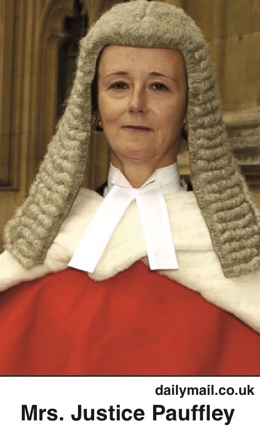Rascals case in brief
In the beginning, in 1989, more than 90 children at the Little Rascals Day Care Center in Edenton, North Carolina, accused a total of 20 adults with 429 instances of sexual abuse over a three-year period. It may have all begun with one parent’s complaint about punishment given her child.
Among the alleged perpetrators: the sheriff and mayor. But prosecutors would charge only Robin Byrum, Darlene Harris, Elizabeth “Betsy” Kelly, Robert “Bob” Kelly, Willard Scott Privott, Shelley Stone and Dawn Wilson – the Edenton 7.
Along with sodomy and beatings, allegations included a baby killed with a handgun, a child being hung upside down from a tree and being set on fire and countless other fantastic incidents involving spaceships, hot air balloons, pirate ships and trained sharks.
By the time prosecutors dropped the last charges in 1997, Little Rascals had become North Carolina’s longest and most costly criminal trial. Prosecutors kept defendants jailed in hopes at least one would turn against their supposed co-conspirators. Remarkably, none did. Another shameful record: Five defendants had to wait longer to face their accusers in court than anyone else in North Carolina history.
Between 1991 and 1997, Ofra Bikel produced three extraordinary episodes on the Little Rascals case for the PBS series “Frontline.” Although “Innocence Lost” did not deter prosecutors, it exposed their tactics and fostered nationwide skepticism and dismay.
With each passing year, the absurdity of the Little Rascals charges has become more obvious. But no admission of error has ever come from prosecutors, police, interviewers or parents. This site is devoted to the issues raised by this case.
On Facebook
Click for earlier Facebook posts archived on this site
Click to go to
Today’s random selection from the Little Rascals Day Care archives….
Click for earlier Facebook posts archived on this site
Click to go to
Today’s random selection from the Little Rascals Day Care archives….
British lawyers see payday in ritual abuse claims
 July 2, 2015
July 2, 2015
“The notion of satanic ritual abuse was dismissed as ‘utter nonsense’ by Mrs. Justice Pauffley in care proceedings in the family court at (London’s) Royal Courts of Justice in March. Two children were coerced by their mother and her boyfriend into alleging horrendous sexual abuse and murder of babies by their father and others in a secret satanic cult…. ‘There was no satanic or other cult at which babies were murdered and children sexually abused,’ the judge said. The claims were ‘fabricated’ and ‘baseless.’
“But the total lack of physical evidence does not deter the compensation chasers. At a child abuse training day in London last week run by the Association of Personal Injury Lawyers, delegates were told that satanic abuse was a reality. Barrister Lee Moore – a self-proclaimed satanic abuse survivor – and solicitor Peter Garsden, who are respectively the past and current president of the Association of Child Abuse Lawyers, ‘kept going on about satanic ritual abuse,’ according to a barrister who was present.
“She went on: ‘Peter Garsden told the assembled band of lawyers that SRA was prevalent and would be accepted as such, “given time.” The point is that at a conference of ‘cutting-edge’ personal injury lawyers specialising in child abuse, only one delegate was prepared to challenge these SRA proponents.’ ”
– From “Satanic Panic Ritual Defence” by Rosie Waterhouse in Private Eye (June 26) – hat tip, British False Memory Society
One difference on our side of the pond: The “compensation chasers” in American ritual abuse cases were much less likely to be lawyers than therapists.
R.I.P., Alexander Cockburn, ritual-abuse skeptic
 July 30, 2012
July 30, 2012
Death noted: Radical-left polemicist Alexander Cockburn, who as early as 1990 was raging against claims of satanic ritual abuse.
Cockburn gave particular attention to feminism’s role in the mania:
“In the coalition powering the satanic abuse persecutions,” he recalled in a 1999 column in The Nation, “feminists constituted a powerful component, most conspicuously in the form of Gloria Steinem and Ms. magazine.
“How did feminism, a movement that grew out of the radical passions of the 1960s, navigate itself into this demonic alliance? Charges of perverse abuse of children seemed an inviting line of attack in the larger onslaught on patriarchy, sexual violence and harassment. Social workers and therapists – many of them feminists – became the investigators and effective prosecutors.”
Cockburn oversimplified, as was his way, but it’s no stretch to see how feminism fed into not only ritual abuse, but also the sister hoaxes of recovered memory syndrome and multiple personality disorder.
Santa, I know this is an unusual request, but….
 Dec. 14, 2012
Dec. 14, 2012
“Lamb, Nancy and Bill Hart. ‘Pointers on multi-victim, multi-perpetrator cases.’ American Prosecutors Research Institute 1992. Attorneys who prosecuted Little Rascals case offer advice regarding mass molestation cases.”
– Description of an 18-page how-to booklet that surely should be filed under “fantasy” or “horror” – if copies existed at all.
Unfortunately, all seem to have vanished from libraries as well as from booksellers. When I requested a copy from the National District Attorneys Association, parent of the research institute, I was told, “We only serve prosecutors, not (even) other lawyers. But… we haven’t been able to find it. So at this point, we could not even provide it to a prosecutor.”
One argument for ‘satanic ritual abuse’ pardons

thebloomfirm.com
Jeffrey Toobin
Dec. 28, 2015
“One problem with pardons is that Presidents have considered them in secret, springing the decisions on the public only after they have been made. In high-profile cases, like Gerald Ford’s pardon of Richard Nixon or Bill Clinton’s pardon of the fugitive financier Marc Rich, the political repercussions have been disastrous.
“But Obama could avoid this problem with some innovation – and sunshine. Over the last year of his Presidency, his Administration should publish the names of people being considered for pardons. In this way, members of the public can make their views known about the wisdom (or lack thereof) of letting each individual out of prison.
“All Presidents and governors (who also have pardon power) are haunted by the possibility that they might release someone who goes on to commit horrible crimes. (Former Governor Mike Huckabee of Arkansas pardoned several people who did just that.)”
– From “It’s Time for Obama to Go Big on Pardons” by Jeffrey Toobin in the New Yorker (Dec. 22)
Yes, the risk attached to granting pardons is real. But is it even possible for someone convicted of an imaginary crime – such as the Edenton Seven and Junior Chandler – to be a recidivist?











0 CommentsComment on Facebook